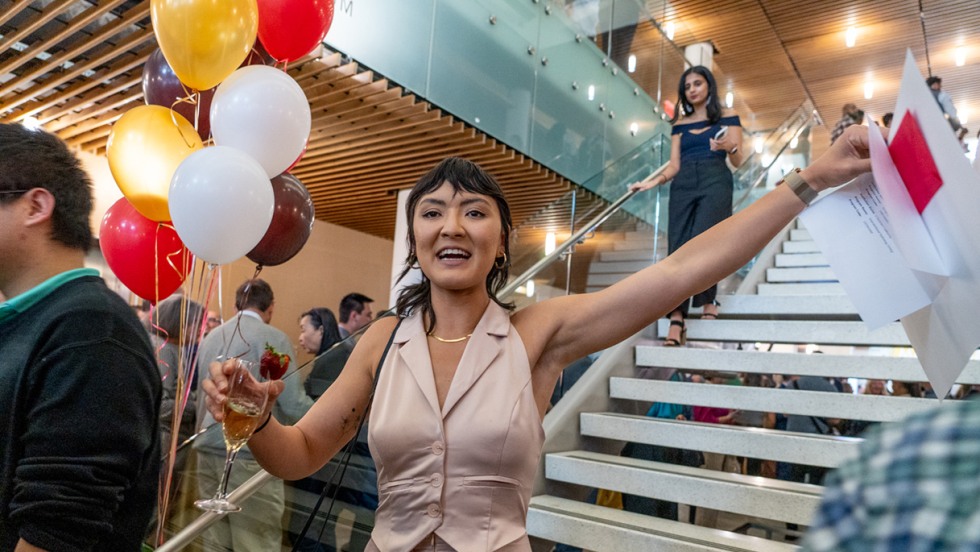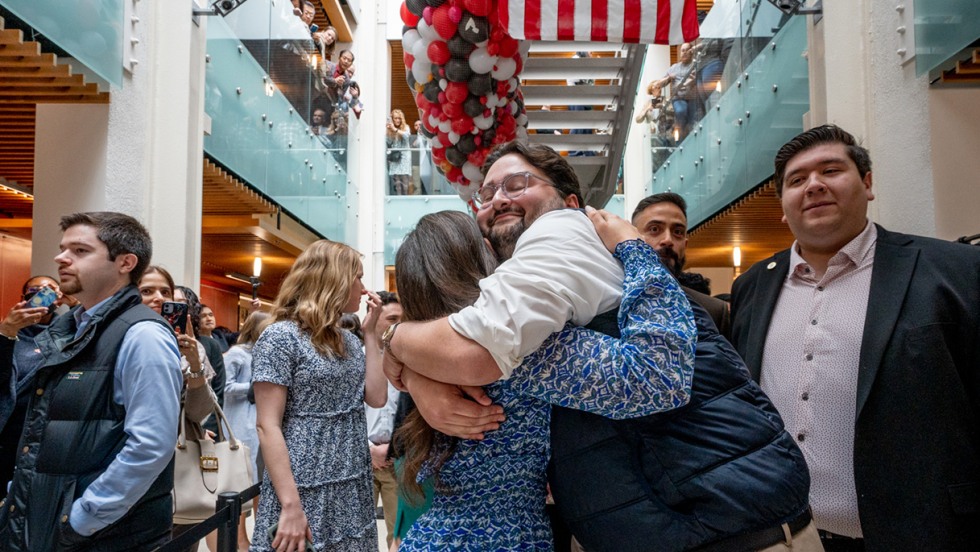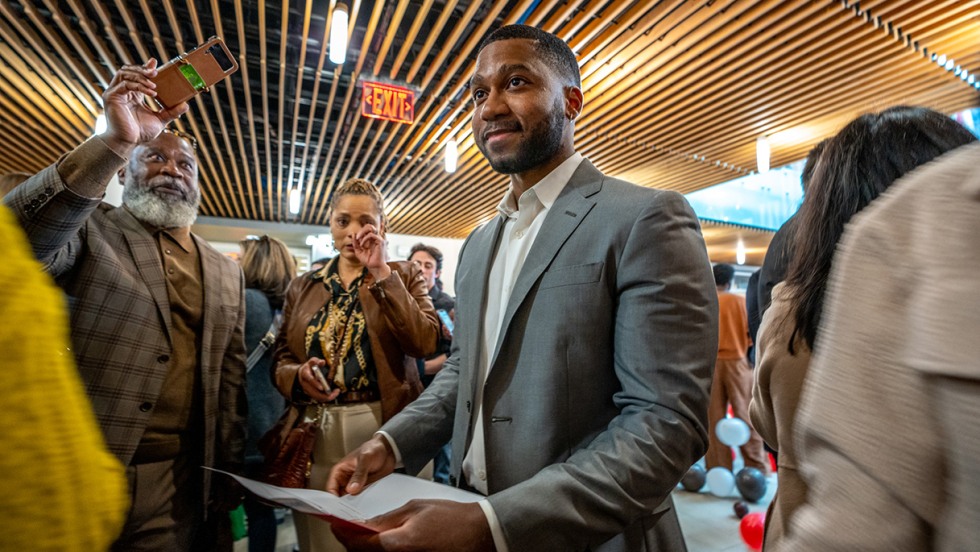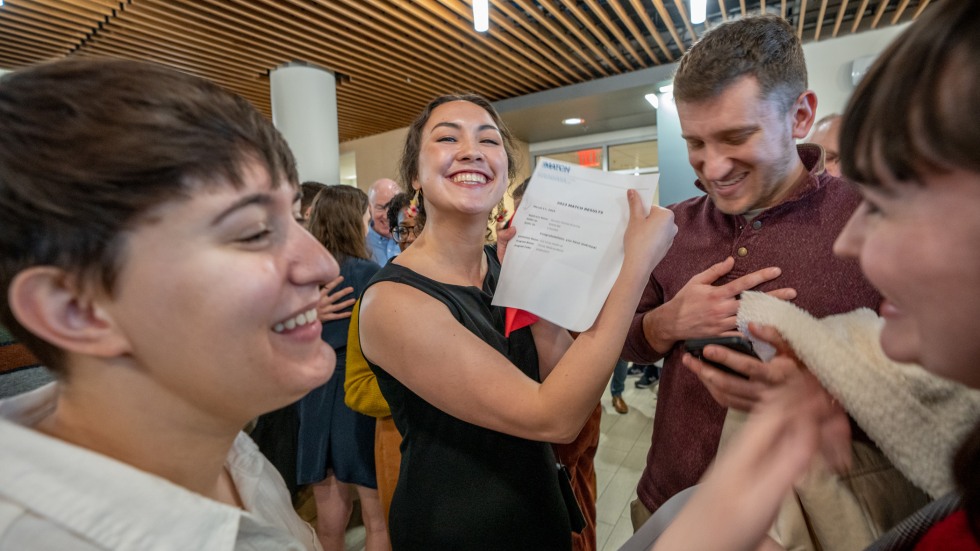PROVIDENCE, R.I. [Brown University] — First there was the COVID-19 lockdown. Then another year of the pandemic in 2021, followed by a scaled-down event on College Hill last year. But on March 17, medical students resumed the tradition of celebrating Match Day in their home building surrounded friends, family members and mentors.
It was the Match Day they deserved, said Dean of Medicine and Biological Sciences Mukesh Jain, especially as it fell during the during the 50th anniversary of medical education at Brown. The 2023 Match Day celebration was held in the Warren Alpert Medical School in Providence’s Jewelry District, with live music, a lavish luncheon spread and three floors’ worth of space for hundreds of people to gather as medical students learned their destiny.
For medical students graduating this spring, Match Day is the culmination of four demanding years of rotations and classes, followed by a nine-month application and interview process.
At precisely noon, after a cacophony of voices counted down from 10 and multicolored balloons cascaded from the ceiling, Brown medical student Benjamin Gallo Marin, from Nicaragua, was among the thousands of medical students across the country who tore open red envelopes containing Match documents. His mother and grandmother, who’d flown in from Nicaragua and Costa Rica, respectively, stood frozen in front of him.
Slowly, a smile spread across Gallo Marin’s face and stayed there. He showed the paper to his family, and his mother’s face filled with emotion. “Stanford Health Care,” it read (Memorial Sloan-Kettering for his transitional year): Gallo Marin’s first choice. He had applied to 76 dermatology residency programs, and another 20 for the preliminary year, which is like an internship for dermatology residents.
“Stanford,” he repeated, letting it sink in.
Gallo Marin praised the quality of mentorship and the atmosphere of support at Brown, from the career services staff to the dermatology program. When it came time to build his rank list, he was struck by the authenticity of his dermatology mentors, especially Dr. Leslie Robinson-Bostom, a professor of dermatology and the director of the dermatology elective.
“She showed such an honest interest in getting to know my values,” Gallo Marin said. “I think that interest in a mentee’s personal happiness isn’t always such a big component of a mentor relationship. … She also took the time to understand what I wanted and what would be best for me.”
The thrill and anguish of match-making
Medical students typically apply to at least 12 residency programs —even four times that many — and may spend the year interviewing at 10 or 20 institutions. Then they rank their top choices based on program type and career aspirations as well as geographical location. Gallo Marin, for example, was seeking a residency program that shared his enthusiasm for global health that would support his goal to bring scholarly innovations from the U.S. to Central America.



